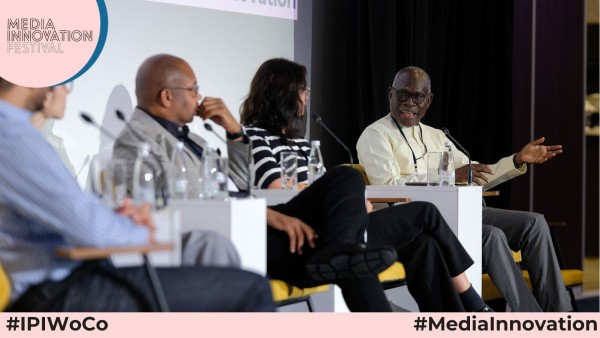IPI on Wednesday sent an open letter to South African President Jacob Zuma expressing concern over the African National Congress’s recent call for a Media Appeals Tribunal, as well as a Protection of Information law that is currently before parliament. The Tribunal is conceived by the ruling party as an independent statutory body that would oversee the media and be accountable to parliament. South Africa’s print media is currently regulated under a voluntary non-statutory Press Ombudsman system, which IPI believes is the best and most effective form of media regulation.
IPI is concerned at this current move toward statutory regulation, and alarmed at suggestions that journalists should face penalties including jail time for their reporting. Punitive measures aside, the proposed Media Appeals Tribunal would effectively put media regulation in the hands of the government, which IPI considers to be incompatible with democratic values including press freedom. The calls for the Tribunal coincide with consideration, by South Africa’s National Assembly, of a bill on the protection of information, which contains provisions that IPI has previously criticized because of their potentially chilling effect on press freedom.
The full text of the letter to President Zuma can be read below:
Dear President Zuma,
I am writing today on behalf of the International Press Institute (IPI), a global network of publishers, editors and leading journalists, to express our deep concern over recent moves which we fear will endanger the independence and vitality of the South African media.
We believe that plans for a government-appointed Media Appeals Tribunal, as well as a draft Protection of Information Bill, if enacted, will endanger the South African media and thereby threaten the people of South Africa’s right to information and rigorous political debate.
Your party, the African National Congress (ANC), has recently suggested that parliament appoint a Media Appeals Tribunal which would be empowered to penalize journalists and media for alleged breaches of ethics. This proposal comes despite the fact that a vigorous and successful system of self-regulation is already in place through the Press Council, in the form of a Press Ombudsman and an Appeals Panel.
The current Press Council has proved its independence and has frequently ruled in favour of party and public officials, forcing newspapers to print embarrassing retractions and corrections – the ultimate sanction for a business that depends on its consumers’ loyalty and trust. The current Press Council is inclusive, and both journalists and public representatives sit on the adjudicating panels.
IPI believes that any Media Appeals Tribunal will not be independent. If the MAT is appointed by parliament, it will face an inherent conflict of interest that will skew its rulings in favour of public and party officials and essentially amount to government oversight of the media – which is unacceptable.
The call for a Media Appeals Tribunal coincides with consideration, by the National Assembly, of the Protection of Information Bill. The bill, which aims to regulate the classification of secret state information, also contains a number of provisions that IPI believes would be damaging to the practice of investigative journalism in South Africa.
As IPI pointed out in a protest statement dated 22 July 2010, the Bill provides for a very low threshold for the classification of information, but at the same time imposes draconian penalties on those who reveal that information – without providing for a public interest defence. Under the draft law, officials who abuse their authority to classify information may be punished with a fine or up to three years in jail. Those who expose such information, however, would be penalized with between five and 25 years in prison – an unfair penalty system that encourages secrecy and could lead to the erosion of investigative journalism.
IPI believes that the media plays a fundamental role in safeguarding democracy by holding elected officials accountable to the people. Both the Protection of Information Bill and the proposed Media Appeals Tribunal seem to represent a policy of protecting public officials, and punishing those who would hold them accountable.
Mr. President, as leader of the African National Congress and of the country, we hope that you will urge the amendment or withdrawal of the Protection of Information Bill, and will act now to end the creation of the Media Appeals Tribunal.
Thank you for your kind attention to this matter. We look forward to hearing how your government and your political party will work to ensure continued press freedom in South Africa, and would be happy to meet you, at a time of your convenience, for further discussion.
Sincerely,
Alison Bethel-McKenzie
Interim Director


